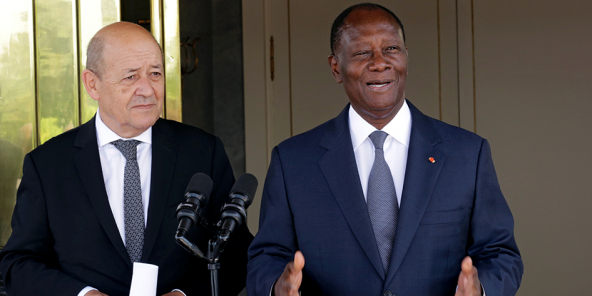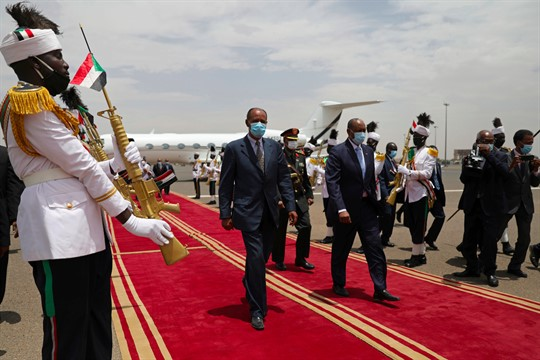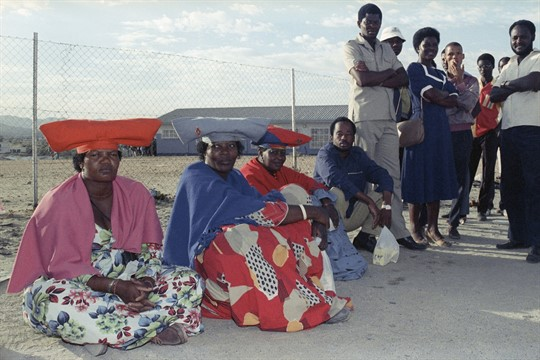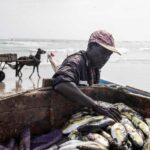Côte d’Ivoire : tête-à-tête avec Ouattara, antiterrorisme… Le programme de Le Drian à Abidjan

Le ministre français des Affaires étrangères sera reçu par le président ivoirien à Abidjan les 9 et 10 juin. Voici les étapes de cette visite officielle.

Le ministre français des Affaires étrangères sera reçu par le président ivoirien à Abidjan les 9 et 10 juin. Voici les étapes de cette visite officielle.

What’s new? As the threat of jihadist violence recedes in Tunisia, some of the counter-terrorist measures put in place in 2013 are eroding social cohesion and undermining citizens’ trust in the country’s institutions.
Why does it matter? These government measures have the potential to drive up the number of jihadist attacks, and in worsening socio-economic conditions they could exacerbate crime and urban unrest.

Shops remained shuttered, some government workers hadn’t been paid and the town’s main hospital was utterly laid to waste. But the Tigrayan fighters still claimed victory, swaggering through the streets of Hawzen with their guns.
It wouldn’t last long.
Hawzen, a rural town in the ethnic Tigray region of northern Ethiopia, is a microcosm of the challenge facing Prime Minister Abiy Ahmed — and a warning that the war here is unlikely to end anytime soon. When The Associated Press arrived in May, Tigrayan fighters had recently retaken Hawzen from Ethiopian government troops, laying claim once again to land that has switched control multiple times since the war began in November.
The U.S. company deleted a message from the Nigerian president who warned protesters to remember the country’s civil war in 1967.
President Muhammadu Buhari’s administration on Wednesday accused Twitter of having double standards and supporting the secessionists in Nigeria.
Information and Culture Minister Lai Mohammed took a swipe at Twitter after it deleted a tweet by Buhari who issued a warning to protesters in Nigeria.
“We have a country to rule, and we will do so to the best of our ability. Twitter’s mission in Nigeria is very suspect, they have an agenda. The mission of Twitter in Nigeria is very suspicious,” Mohammed said.
In the deleted tweet, Buhari had made a reference to the country’s 30-month civil war in 1967-1970, warning “those who wanted the government to fail” to desist from fomenting trouble.
“Many of those misbehaving today are too young to be aware of the destruction and loss of lives that occurred during the Nigeria civil war. Those of us in the fields for 30 months, who went through the war, will treat them in the language they understand,” Buhari tweeted on Tuesday night.
Twitter deleted his post on Wednesday, following criticisms from some netizens. However, Mohammed questioned the rule of Twitter.
“Twitter may have its own rules, it’s not the universal rule. If Mr. President, anywhere in the world feels very bad and concerned about a situation, he is free to express such views,” he said, adding that the social networking service had overlooked the tweets of leading secessionists in Nigeria.
“When people were burning police stations and killing policemen in Nigeria during End SARS, a decentralized social movement, for Twitter, it was about the right to protest. But when a similar thing happened in the United States, it became insurrection,” Mohammed said.

In early May, when Eritrean President Isaias Afwerki visited Sudan, the official objective of the trip was to strengthen bilateral ties within a regional framework. The visit nevertheless raised eyebrows. It came on the heels of Eritrea’s military participation in Ethiopia’s civil war in Tigray region, and also at a time of rising tensions between Ethiopia and Sudan over the Grand Ethiopian Renaissance Dam and a border dispute involving areas near Tigray, among other issues. Unofficially, local observers have suggested that Eritrea may seek a role in mediating between Ethiopia and Sudan.

A decade ago, while researching a book about Chinese migration to Africa, I made an extended stay in Namibia, then one of a small number of African countries I had never visited in a lifetime of writing about the continent.
To get to know the place as well as I could, I rented a car and drove with my brother, James, throughout much of the country, a land more than twice the size of Germany. The reference here is appropriate, because it was Germany, a relative latecomer to European imperialism in Africa, that colonized Namibia toward the close of the 19th century.

Le président du Congo-Brazzaville, Denis Sassou-Nguesso, a nommé son fils Denis-Christel au poste de ministre – une décision qui a relancé les spéculations médiatiques selon lesquelles il aurait en tête une succession dynastique.
Non pas qu’une telle transition semble imminente. Élu pour un nouveau mandat en mars, après avoir dirigé le pays pendant la totalité des 41 dernières années, sauf cinq, rien n’indique que le chef de l’État, âgé de 77 ans, ait perdu son appétit pour le pouvoir.

Selon l’ONG Greenpeace, la production destinée aux industries européennes et asiatiques contribue au pillage des ressources halieutiques ouest-africaines.
Les producteurs de farine et d’huile de poisson destinées aux industries européennes et asiatiques privent les populations d’Afrique de l’Ouest d’une part importante de leur alimentation et contribuent au pillage des ressources halieutiques, dénonce Greenpeace dans un rapport publié mardi 31 mai.

Déjà déclaré mort à cinq reprises entre 2009 et 2016, Abubakar Shekau aurait été tué le 19 mai dans son fief de la forêt de Sambisa, dans le nord-est du Nigeria. Cette fois, l’information semble cependant crédible.
En ce soir du 19 mai, une colonne de combattants de l’État islamique en Afrique de l’Ouest (ISWAP), portés par une cinquantaine de pick-up, déferle dans la zone dans laquelle Abubakar Shekau s’est retranché avec ses hommes. Après de longues heures de combat, et alors que la plupart de ses hommes ont été tués ou mis hors d’état de nuire, le chef de la secte islamiste Boko Haram, acculé, est contraint de négocier.

Dans une interview accordée au Journal du Dimanche (JDD), publiée ce week-end, le président français Emmanuel Macron a évoqué le sentiment anti-français en Centrafrique, instrumentalisé, selon lui, par un groupe militaire privé lié à la Russie. Une référence à la société militaire privée Wagner, un groupe sans existence juridique, mais qui entretient des liens étroits avec le Kremlin, selon les observateurs, et dont les éléments combattraient aux côtés des troupes gouvernementales.